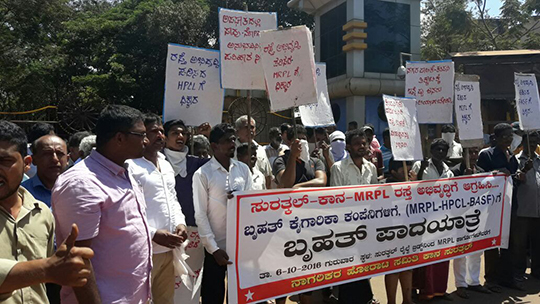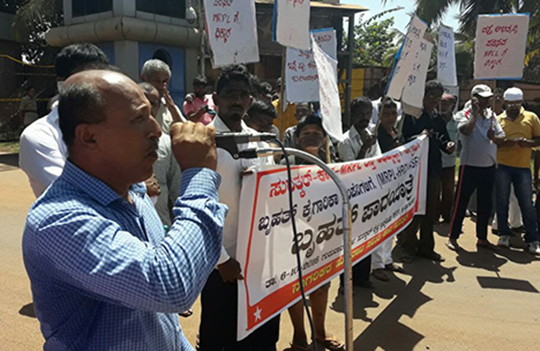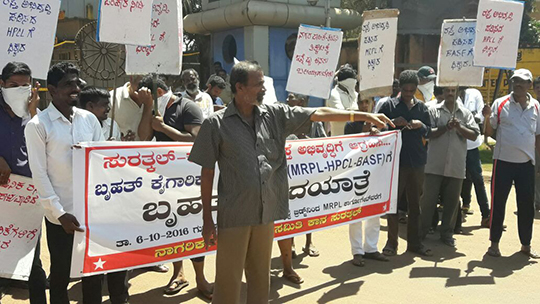Mangaluru, Oct 6: Even as the Mangaluru City Corporation and MRPL are at loggerheads with each other over the repair work of bumpy Suratkal–Kana Road, the residents of the area on Wednesday staged a protest accusing both of them of running away from their responsibilities.

Under the banner of Kana Nagarika Horata Samiti, the residents took out a protest march from Suratkal and converged in front of the main entrance of Mangalore Refineries and Petrochemicals Limited.
Before reaching MRPL, the protesters stopped their padayatra' in front of Hindustan Petroleum Corporation Ltd (HPCL) and BASF for some time to raise slogans against them.
Addressing the protesters near the main entrance of MRPL, Muneer Katipalla, the state president of Democratic Youth Federation of India, said that both the company and the civic body are trying to evade their responsibilities.
Criticising Mangaluru Mayor Harinath for his recent statement that he would join the protest against MRPL if it fails to take up the repair work, Mr Katipalla said that the former's responsibility is to govern and not to protest.
“Elected representatives should use their capacity and power to force the company to fulfil its responsibilities. If they cannot pressurise the company, they should tender resignations to their posts and then join the protesters,” he said.
Mr Katipalla said that both MRPL and MCC should stop drama and take necessary step to fix the road immediately. He said that the residents will intensify the protest against the company if it continues to exhibit its indifferent attitude.
Office bearers of the Samiti BK Imtiyaz, Naveen Poojary led the protest march. Hours after the protest Dakshina Kannada deputy commissioner K G Jagadeesha paid a visit to Kana to inspect the road along with officers from MCC.








 .
.
Comments
Shift this mrpl. Its a slow poison for kana suratkal people.
Because of mrpl people are dying younger.
MASSIVE CROWD...
Add new comment